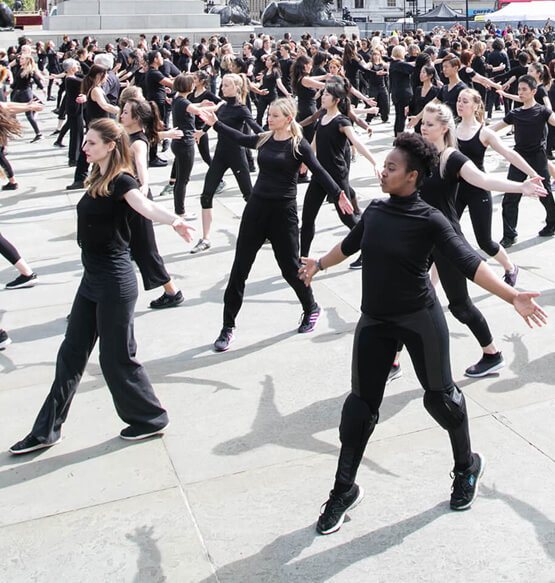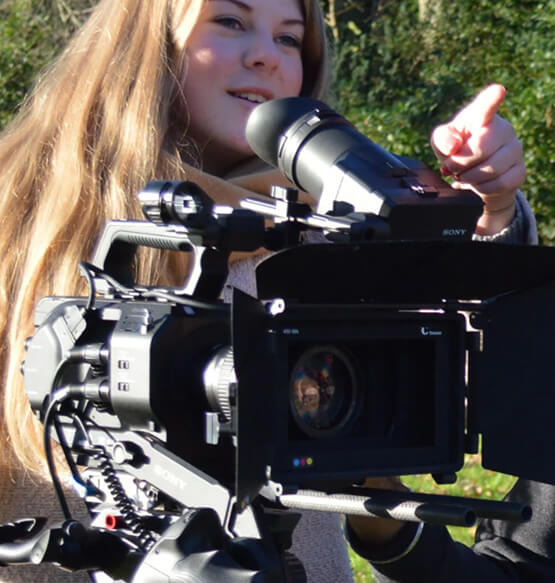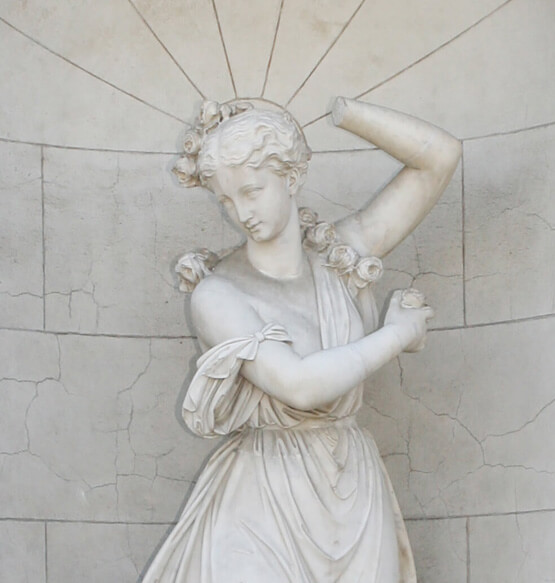Duration:
2 years
Number of credits:
240 credits
Start date(s):
September 2025
September 2026
Fast-track your career with a degree that champions individuality, delivers competitive advantage and prioritises skill in an exciting creative field.
Did you know?
University of Roehampton London is ranked No. 1 for dance research in the UK (Research Excellence Framework 2021).
Modules
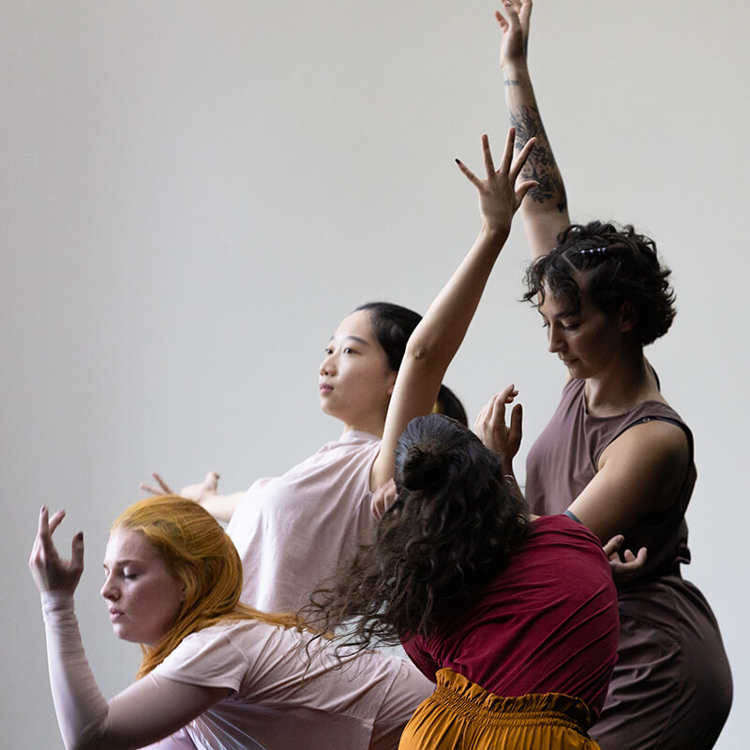
Skills
Gain the expertise you need to standout in today’s marketplace.
This MFA course will help you refine your artistic practice by advancing your creative, technical and performance skills. The programme includes:
- technique classes
- choreography workshops
- laboratory sessions
- dialogue
- writing and reflection
You will be encouraged to experiment and take risks in a series of self-directed choreographic projects that help you develop a portfolio of work.
We also have excellent links with dance companies and creative organisations. In easy reach of London’s vibrant dance scene, the campus has superb studios and a state-of-the-art theatre for dance students
The School is home to the internationally recognised Centre for Research in Arts and Creative Exchange, which aims to interrogate what arts research is and can be in the current climate, and to lead, invent and innovate on how research is conducted. Through seminars, forums and conferences involving staff and international guests, the Centre supports a compelling research culture.
We are ranked number one in the UK for the impact of our research in dance (Research Excellence Framework 2021).
Our BA Dance course is number one for learning resources in London (National Student Survey 2020).
Learning
Choose a course that works around you.
You will be:
- supported by the mentorship and teaching of experienced staff
- put your ideas into practice in our modern studios and well-equipped performance theatre
- studying with highly experienced in-house and visiting artists and tutors
- develop work alongside a creative community of peers.
In year one, you will take two compulsory programme specific modules (Choreography and Dance Practice) which are both year-long. Choreography uses a collaborative and constructive laboratory environment to enable you to interrogate your existing choreographic practice.
Dance Practice provides a framework for you to explore movement potential using a variety of approaches and techniques.
In year two, there is flexibility to choose between modules to suit your interests alongside your core module called Choreographic Thesis. In this module, you will have an independent choreographic vision using original research which is underpinned by tutorials, peer review and open rehearsals.
Careers
Graduates from this programme can be found working as independent artists in London, Berlin and New York.
You could find yourself:
- presenting your work at a number of venues in London and at the Edinburgh and Stockholm Fringe Festivals
- teaching in higher education in the UK and abroad
- curating programmes and events for dance artists across Europe
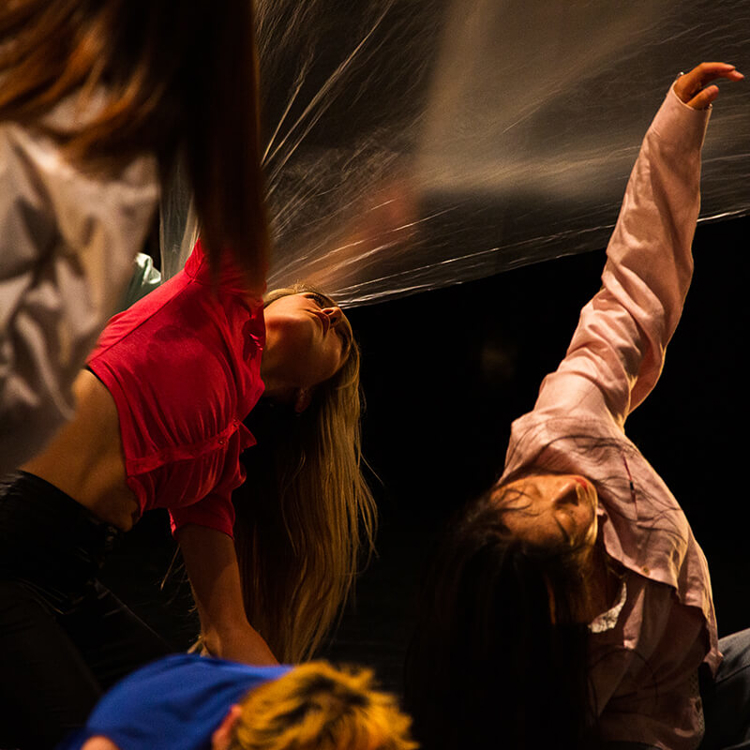
Our careers team is available to support you from the start of your studies until after you graduate. We will help you build your CV, prepare for interviews, and meet and learn from successful graduates working at the top of their careers. You’ll also have opportunities to work with our partners across London and beyond, and to attend a Roehampton jobs fair where you can find out about graduate opportunities and meet employers.
Open days
Get a real taste of our campus, community and what it’s like to study at Roehampton
Applying
UK postgraduate students apply through our direct application system.
Specific entry requirements
Applicants are required to provide a video with one or two examples of recent choreographic practice. The work should be accompanied by a short statement which reveals the applicant's intention and interest in making this particular work.
General entry requirements
September 2025 entry tuition fees (UK)
| Level of study | Full-time* |
| MFA | £6,950 |
*Year 1 fee
We offer a wide range of scholarships and bursaries. See our financial support pages for UK students.
We also provide other ways to support the cost of living, including free buses and on-campus car parking, hardship support and some of the most affordable student accommodation and catering in London. Find out more about how we can support you.
International postgraduate students apply through our direct application system.
Specific entry requirements
Applicants are required to provide a video with one or two examples of recent choreographic practice. The work should be accompanied by a short statement which reveals the applicant's intention and interest in making this particular work.
General entry requirements
September 2025 entry tuition fees (international)
| Level of study | Full-time* |
| MFA | £13,950 |
*Year 1 fee
We offer a wide range of scholarships and bursaries. See our financial support pages for international students.
We also provide other ways to support the cost of living, including free buses and on-campus car parking, hardship support and some of the most affordable student accommodation and catering in London. Find out more about how we can support you.




